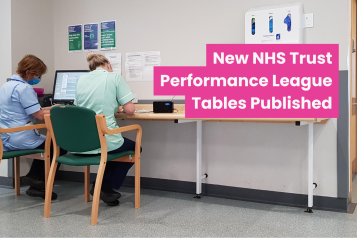Preparing for winter

As the days get colder, it is important to think about ways you can keep well over the winter months.
Cold weather can make some health problems worse and even lead to serious complications. It also means diseases spread more easily as we spend more time indoors. Keeping warm and well over the winter can help to prevent colds, Covid-19, flu and more serious health problems such as heart attacks, strokes, pneumonia and depression.
Winter vaccinations
Getting the flu and Covid-19 vaccines ahead of winter are two of the most important things you can do to keep yourself and those around you safe.
Flu isn’t just a bad cold. It hit hard last winter and many people ended up in hospital. Get vaccinated as early as you can to protect yourself and those around you.
This year anyone aged 65 and over, adults and children with certain health conditions, pregnant women, frontline health and social care workers and children aged 2 to 16 can get a free vaccination. You can get them easily from a local pharmacy, GP or in school.
Eligible adults can book now:
- Book on the NHS website
- Book on the NHS App
- Call 119
- Walk into your local pharmacy from 1 October
- Contact your GP
Pregnant women can:
- Speak to your maternity team to receive the flu jab at a scheduled maternity appointment.
- Contact your GP practice
- Book a pharmacy appointment on the NHS website, on the NHS App or call 119
- Walk into your local pharmacy from 1 October
Parents of 2 to 3 year olds:
If your child is aged 2-3, your GP will invite them to have their flu vaccine or you can book an appointment at a local pharmacy or walk in.
Parents of children aged 4 to 16 will be asked for consent for a vaccine in school. But they can always catch up via GP.
Who should have the COVID-19 vaccine
You can get the winter COVID-19 vaccine if you:
- are aged 75 or over (including those who will be 75 by 31 January 2026)
- are aged 6 months to 74 years and have a weakened immune system because of a health condition or treatment
- live in a care home for older adults
Visit the vaccinations web hub for information on the vaccines, eligibility and how to book.
Stay Warm
You should heat your home to a temperature that is comfortable for you. Low indoor temperatures can have a serious impact on your health, especially if you have medical conditions or are older.
- Simple changes can help to keep you and your home warm. These include:
- Try to heat rooms you spend a lot of time in, such as the living room or bedroom, to at least 18°C
- Try to reduce draughts; you can fit draft excluders around doors cheaply
- Keep your bedroom windows closed at night
- Wear several layers of thinner clothing; this could keep you warmer than one thicker layer
- If you are struggling to heat your home, you can visit a number of warm spaces in Redbridge. They include libraries, leisure centres and faith centres - some offer hot drinks and Wi-Fi.
Check Your Medicine Cabinet
- Make sure you have enough prescription medications. Stock up early as your GP or pharmacy may closed over the bank holidays. The best place to find an open or late night pharmacy is through the NHS website: Find a Pharmacy
- Make sure the medicine you do have is still in date.
- Stock up on essential over-the-counter medications for common winter illnesses like coughs, colds, sore throats and general aches and pains. Ask your pharmacist for advice.
Stay Healthy
- Try to reduce the amount of time you spend sitting down during the day and keep active. It doesn’t matter what you do, as long as it’s something you enjoy and keeps you moving.
- Eating a healthy balanced diet can help you to feel your best and keep your energy levels up.
- Wear shoes with good grip when you go outside to avoid slips and falls on slippery or icy surfaces.
Stay Connected
- Keep in touch with your family, friends and neighbours.
- Speak to someone if you are feeling under the weather, and don't be afraid to ask if you or they need any help.


